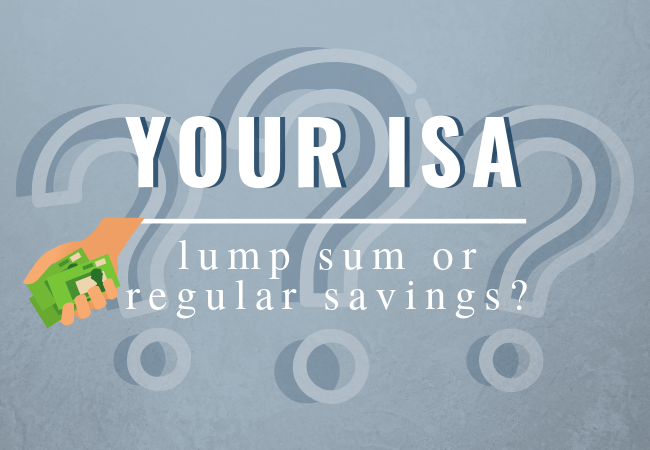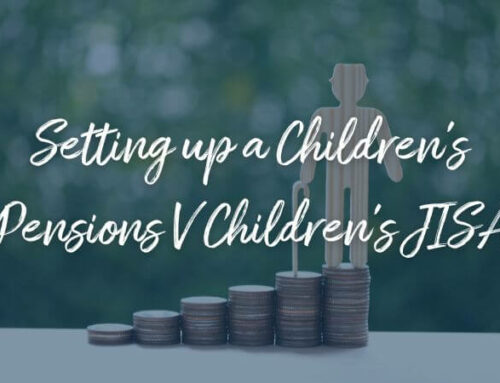Which should you go for: ISA Lump Sum or Regular Savings?
The good news is that since April 6th you can use this year’s ISA savings allowance to put your hard-earned cash to work in a tax-efficient way.
The 2018–19 allowance is a generous £20,000, and it makes sense to take advantage of this savings opportunity as soon as possible in the year, rather than risk losing your entitlement if you forget and miss the tax yearend deadline of April 5th . The longer your money is in your ISA, the more opportunity for interest and growth.
If you’re planning to use your ISA allowance this tax year, it’s worth remembering that the longer your money is saved or invested, the more time it has to produce tax-free returns.
If you’re thinking of putting your ISA subscription into the stock market but are worried about volatility that stocks and shares experience, then you can always choose to make regular contributions.
This approach is called ‘pound-cost averaging’ and means that you don’t have to worry about getting the timing of purchases exactly right, and there’s no need to constantly watch markets to invest at the right moment.
The value of investments can go down as well as up and you may not get back the full amount you invested. The past is not a guide to future performance and past performance may not necessarily be repeated.
It is important to take professional advice before making any decision relating to your personal finances. Information within this blog is based on our current understanding of taxation and can be subject to change in future.
It does not provide individual tailored investment advice and is for guidance only. Some rules may vary in different parts of the UK; please ask for details. We cannot assume legal liability for any errors or omissions it might contain. Levels and bases of, and reliefs from, taxation are those currently applying or proposed and are subject to change; their value depends on the individual circumstances of the investor.
The value of investments can go down as well as up and you may not get back the full amount you invested. The past is not a guide to future performance and past performance may not necessarily be repeated.
If you withdraw from an investment in the early years, you may not get back the full amount you invested. Changes in the rates of exchange may have an adverse effect on the value or price of an investment in sterling terms if it is denominated in a foreign currency. Taxation depends on individual circumstances as well as tax law and HMRC practice which can change.
The information contained within the blog is for information purposes only and does not constitute financial advice.
The purpose of the blog is to provide technical and general guidance and should not be interpreted as a personal recommendation or advice.






